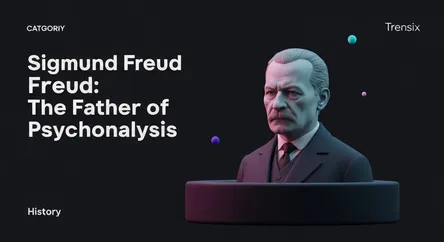History
Sigmund Freud: The Father of Psychoanalysis

An overview of Sigmund Freud, the founder of psychoanalysis, and his revolutionary theories on the human mind that continue to influence psychology today.
What is it?
Sigmund Freud (1856-1939) was an Austrian neurologist and the founder of psychoanalysis, a revolutionary method for treating mental illness and a theory of human behavior. His work established the "father of modern psychology" title for him. Freud's core assertion was that our minds operate on conscious and unconscious levels. He proposed a structural model of the psyche divided into three parts: the id (primal desires), the ego (the conscious self that mediates reality), and the superego (moral conscience). Freud's theories also included dream analysis, psychosexual stages of development, and defense mechanisms.
Why is it trending?
Despite many theories being controversial and debated, Freud's ideas are deeply woven into Western culture. Terms like "Freudian slip," "denial," and "repression" are common in everyday language. His concept of the unconscious mind remains a cornerstone of modern psychology, influencing our understanding of phenomena like implicit biases and automatic thoughts. Contemporary discussions about the importance of early childhood experiences in shaping adult personality find their roots in Freudian thought. This ensures his work continues to be studied, debated, and reinterpreted in psychology, cultural studies, and beyond.
How does it affect people?
Freud fundamentally changed how society views and treats mental illness. He moved the focus from purely organic causes to the inner world of psychic conflicts and childhood traumas. His invention of psychoanalysis, or "talk therapy," created a new way for individuals to understand their motivations, desires, and beliefs that might be buried in their unconscious. This approach laid the groundwork for many modern therapeutic practices. His work encourages people to explore their past and unconscious mind to understand their current behaviors and find relief from psychological distress.